Search Definitions
Browse Content (p. 189)
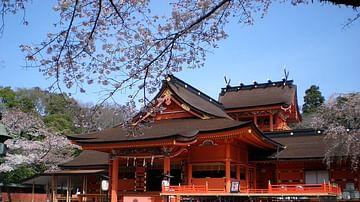
Definition
Shinto Architecture
The architecture of the 80,000 Shinto shrines in Japan varies depending on geographical location, the deity worshipped, and the date of foundation. The earlier Shinto shrines tend to be simpler and less decorative affairs than those which...
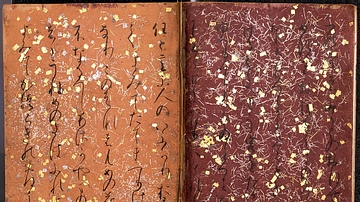
Definition
Ono no Komachi
Ono no Komachi was a poetess of great renown during the Heian Period (794-1185 CE) of ancient Japan. The Kokinshu anthology, compiled in 905 CE, contains many of her poems, and her work and life inspired later writers of Noh drama. She is...
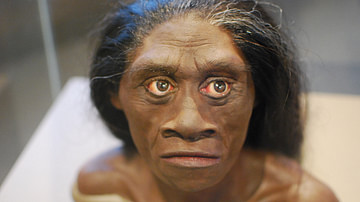
Definition
Homo Floresiensis
Homo floresiensis, nicknamed 'hobbit' because it only stood about 1 meter tall, is an extinct species of fossil human that lived on the island of Flores, Indonesia during the Pleistocene. Floresiensis is still shrouded in a fair bit of mystery...
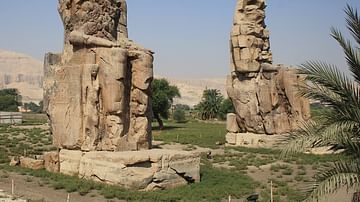
Definition
Colossi of Memnon
The Colossi of Memnon (also known as el-Colossat or el-Salamat) are two monumental statues representing Amenhotep III (1386-1353 BCE) of the 18th Dynasty of Egypt. They are located west of the modern city of Luxor and face east looking toward...
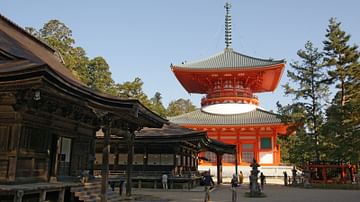
Definition
Mount Koya
Mount Koya (aka Koyasan), located in the Wakayama Prefecture, south of Osaka, Japan, is the site of a temple complex founded in 819 CE by the scholar monk Kukai as the headquarters for Shingon Buddhism. There are temples and sacred buildings...
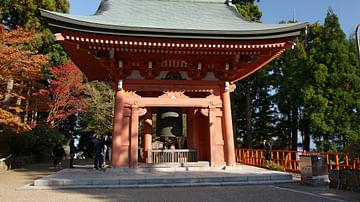
Definition
Enryakuji
The Enryakuji is a Buddhist monastic complex on the sacred Mt. Hiei, near Kyoto, Japan. The site was selected by the monk Saicho to become the headquarters of the Tendai sect, which he founded in Japan in the early 9th century CE. Enryakuji...
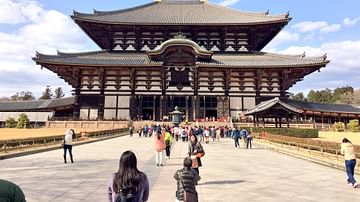
Definition
Todaiji
Todaiji is an ancient temple complex in Nara, Japan. Founded in 738 CE and officially opened in 752 CE when Nara was the capital, the temple is the headquarters of the Buddhist Kegon sect. The temple has a 500-ton sculpture of the Buddha...

Definition
Ancient Nara
Nara, located around 30 km south of modern Kyoto, was the capital of ancient Japan between 710 and 784 CE. It gave its name to the Nara Period (710-794 CE), although the name during the 8th century CE was Heijokyo. Modelled on the Chinese...

Definition
To-ji
The To-ji Shingon Buddhist temple complex is located in Kyoto, Japan. Founded in 796 CE, its five-storey wooden pagoda is the largest in Japan, a symbol of the city, and listed as a National Treasure. The complex includes other examples of...

Definition
Ancient Egyptian Art
The artworks of ancient Egypt have fascinated people for thousands of years. The early Greek and later Roman artists were influenced by Egyptian techniques and their art would inspire those of other cultures up to the present day. Many artists...